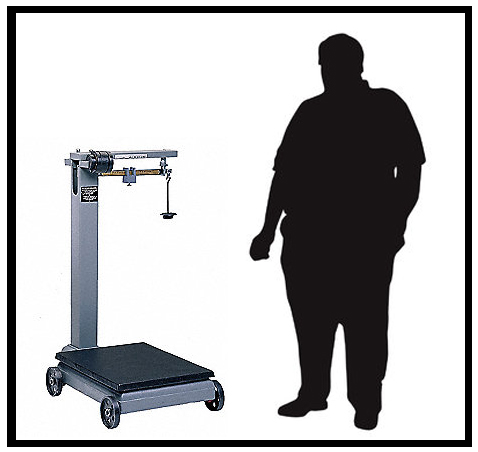Conquering Obesity
Column #347 April 29, 2022
The American Medical Association (AMA) officially identified obesity as a disease in 2013. But the reaction was pretty ho hum even though some people, and even some doctors, used to think an obese person had hormone problems or some such thing. Always by far, the majority of people have placed the blame on an individual eating too much fat, fried foods, and processed foods as their reason for obesity.1
If we think about it though, there’s good reason to consider obesity to be another chronic disease. It’s now being recognized that obesity causes many other chronic diseases, so many that some sources regard obesity as “the single greatest threat to public health for this century.”2
What makes obesity fit the definition of a chronic disease is that chronic diseases are often caused by abuse and the worst abuse usually comes from what a person eats. These days most people understand that carbohydrates, sugar, and food/oils high in Omega-6 essential fatty acids cause weight gain and health problems. But there are additional factors. The NIH states that the causes “include diet (nutrition), lack of exercise, environmental factors, and genetics.” Those four factors are the same as for what drives heart disease, asthma, arthritis, and the list goes on. And for all these chronic diseases it’s amazing how depression, lack of sleep, and not enough exercise just makes matters worse.3
For years I’ve talked and written about improving health with nutrition. Diseases such as dementia, multiple sclerosis, diabetes, and many other “incurable” diseases can be reversed. But not everyone gets on board. In fact, very few people get on board. Most just go on and opt for drugs and operations because it’s what everyone else does and it’s easy. It’s easy because one doesn’t have to change much if anything. Life is good.
Conquering obesity is not a snap. I think it's almost like tackling alcoholism or drug addiction. No matter what, losing weight takes change. To do that it's up to the individual to get a grip on their life. Nobody can do it for them. I’ve known folks for decades who have been WAY overweight and, when it comes to change, they’re helpless. They just keep on doing what they’ve been doing for decades while talking about how they wish they could lose some weight. Once in awhile they try a first step, but quickly give it up.
For those who really want to change and have the internal fortitude to make changes in their lives, losing weight is still a challenge yet they pull it off. If the weight loss goal is small, quite often it can be reached in a month or less. The main issue these people have is how to handle themselves after reaching their goal. But for the long-term obese person, changing the diet is similar to quitting any addiction. It almost always requires the support of a higher power like you’ll find in the Bible and a coach like you might find at Alcoholics Anonymous.
Learning more about nutrition is also important. That can start with reports from Artemis P. Simopoulos. It’s powerful “medicine” when one knows how nutritional deficiencies hamper bodily functions and that nutritional deficiencies can be solved. There’s also plenty of readily available data on food chemistry that breaks down comparative nutritional information for various foods. It can be found in various food tables. Knowing which foods are the worst and which are the best is an required tool for making effective change.4 5
Thanks to the Internet there’s also online weight-loss coaching and education sites. As one may imagine, they discuss the supporting principles for losing weight that is similar to those taught by Alcoholics Anonymous to permanently break addictions. In other words, they can provide the knowledge, moral, and spiritual support that’s required in the step-by-step processes of losing weight that have been successful for so many others. Kevin Stock has an excellent weight loss program that he recently launched in his Meat Health Academy. If you want to lose weight and be healthier at the same time, his program can do the trick.6 7 8
Getting into shape for a healthier, longer, more fulfilling life is within your grasp. For some folks, it’s just a little too much flab that just keeps hanging on. For others, it’s persistent obesity and they’re tired of halfway measures that never get the job done. No matter which circumstance you’re in, if you want to change all you have to do is say, “Yes, I can do this.” If you mean it, then go after it one step at a time. It’s a process for sure. But you can do it if you really want to—except that sometimes it takes a little help.
To your health.
Ted Slanker
Ted Slanker has been reporting on the fundamentals of nutritional research in publications, television and radio appearances, and at conferences since 1999. He condenses complex studies into the basics required for health and well-being. His eBook, The Real Diet of Man, is available online.
Don't miss these links for additional reading:
1. Regarding Obesity as a Disease: Evolving Policies and Their Implications by Theodore K. Kyle, RPh, MBA, Emily J. Dhurandhar, PhD, and David B. Allison, PhD
2. Obesity Is a Disease, Recognize It as Such by Michael Rosenbaum, MD and George Bray, MD
3. What Causes Obesity & Overweight? from NIH...Turning Discovery Into Health
4. An Increase in the Omega-6/Omega-3 Fatty Acid Ratio Increases the Risk for Obesity by Artemis P. Simopoulos
5. Food Analysis: EFA, Protein to Fat, Net Carbs, Sugar, and Nutrient Load by Ted Slanker
6. Alcoholics Anonymous from Wikipedia
7. How to Lose Fat on the Carnivore Diet by Dr. Kevin Stock
8. How to Lose Fat by Kevin Stock from Meat Health




